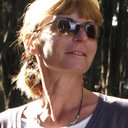Chloroquine supplementation increases the cytotoxic effect of curcumin against Her2/neu overexpressing breast cancer cells in vitro and in vivo in nude mice while counteracts it in immune competent mice.
Raktažodžiai
Santrauka
Autophagy is usually a pro-survival mechanism in cancer cells, especially in the course of chemotherapy, thus autophagy inhibition may enhance the chemotherapy-mediated anti-cancer effect. However, since autophagy is strongly involved in the immunogenicity of cell death by promoting ATP release, its inhibition may reduce the immune response against tumors, negatively influencing the overall outcome of chemotherapy. In this study, we evaluated the in vitro and in vivo anti-cancer effect of curcumin (CUR) against Her2/neu overexpressing breast cancer cells (TUBO) in the presence or in the absence of the autophagy inhibitor chloroquine (CQ). We found that TUBO cell death induced by CUR was increased in vitro by CQ and slightly in vivo in nude mice. Conversely, CQ counteracted the Cur cytotoxic effect in immune competent mice, as demonstrated by the lack of in vivo tumor regression and the reduction of overall mice survival as compared with CUR-treated mice. Immunohistochemistry analysis revealed the presence of a remarkable FoxP3 T cell infiltrate within the tumors in CUR/CQ treated mice and a reduction of T cytotoxic cells, as compared with single CUR treatment. These findings suggest that autophagy is important to elicit anti-tumor immune response and that autophagy inhibition by CQ reduces such response also by recruiting T regulatory (Treg) cells in the tumor microenvironment that may be pro-tumorigenic and might counteract CUR-mediated anti-cancer effects.


